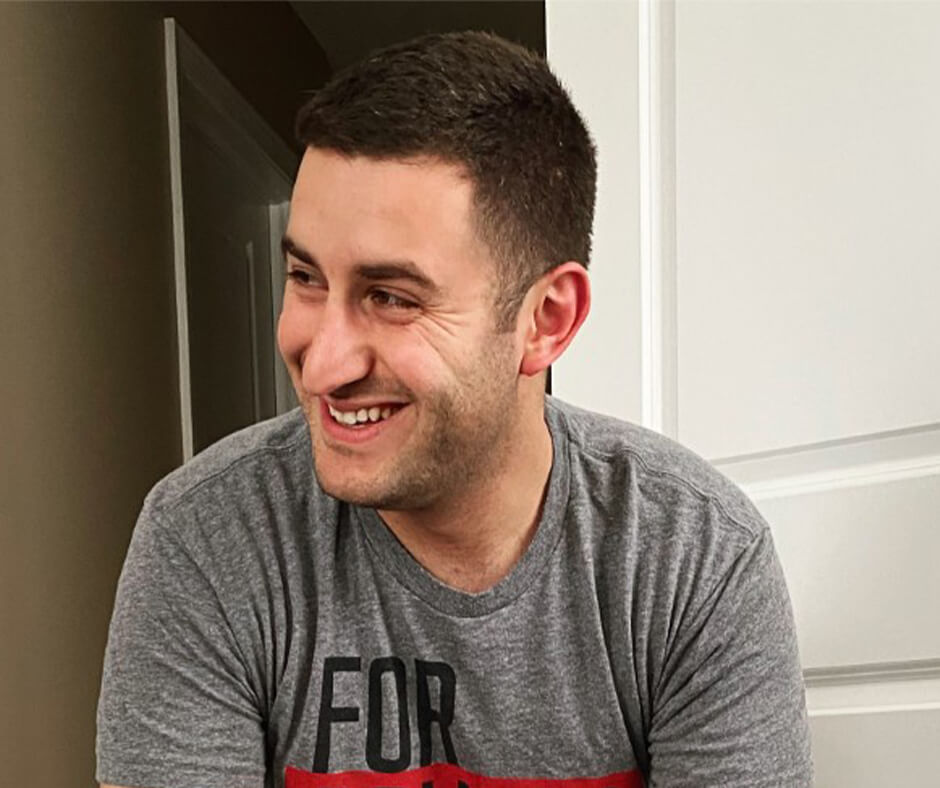Rob Schilder is the Director of Client Services at Midwest Recovery in Toledo, Ohio. To say that he loves his job would be an understatement. Schilder describes himself as being a “Union Rep,” for the clients–a living, breathing suggestions & grievances box. Most importantly, he can relate to clients; he’s been where they are. Schilder grew up in a New Jersey suburb just outside of New York City. He says he had an ideal upbringing by loving parents, but began using drugs as a teenager. “It seemed to spiral out of control once I was in high school. By the time I was 17 I was full-fledged into my addiction,” he said. “And when I was 19, I had a one-way ticket to Florida.” Down South, Schilder did what many in the treatment world call “The Florida Shuffle,” bouncing in and out of substance use treatment and sober living facilities. He’d achieve 30 days of sobriety here, 60 days of sobriety there, but had trouble making it stick. At one point he took a job at an insurance agency, which proved to be fateful. “I worked for Mike Silberman at one of his former businesses,” Schilder said. “I worked there for about six days. I used on the job… He doesn’t like that. So I was terminated, but we stayed Facebook friends.”
On June 13, 2014, Rob Schilder finally entered recovery, and it stuck. He moved to Columbus, Ohio, got involved in a recovery network, enrolled in community college, and got a job folding t-shirts at the mall. Things were moving in an upward trajectory. By the time Schilder had a year sober, he put in a transfer application to Ohio State University. The application essay question was “Why should we accept you into Ohio State University?” “I was previously denied admission to Ohio State when I was in high school,” Schilder said. “During the application process, I gave them my lead. I told them what it was like in high school, I told them about my experience in Florida, and I told them about my recovery. I explained why I had gaps in my resume and transcript. The last thing I wrote in that essay was, ‘I’m a person in recovery and I want to show you all what we are capable of.’”
After being accepted, Schilder became involved in the Collegiate Recovery Community at OSU. This group of sober students hosts events like sober tailgates, watch parties, and meet ups–as well as outreach events encouraging other people in recovery to go back to school. Eventually, the group offered Schilder a paid position, including many speaking engagements. “The University was paying me,” Schilder said. “And this is the same university that only four years earlier denied me. Now they were paying me and giving me scholarships. That’s the power of recovery.” Schilder posted a video of one of his speaking engagements on Facebook. This video caught the eye of his former employer and Facebook friend, Michael Silberman, at this point the COO of TruHealing Centers. “We didn’t talk over those years. We didn’t communicate at all. But he sees this video of me giving a talk about recovery and he just couldn’t believe that I was the same person he had to fire,” Schilder said. “He reached out to me and said, ‘Get out of here; you’re doing well. I have a facility in Ohio, and it’s just getting started, but it’s on its way to be something amazing. I want you to be involved.’” Schilder then turned down graduate school opportunities to start the job “day one after graduating.” Now at MWRC, Schilder spends his days making sure the experience of both clients and staff is optimal.
Over the course of several years, Midwest Recovery Center and its sister facility Midwest Detox Center have helped hundreds of people from Ohio step away from addiction and into recovery. In a state like Ohio, which saw more than 5,000 drug overdose deaths in 2017, more resources are necessary. “I’ll be the first person to say that if places like this weren’t needed anymore, I’d be the happiest guy in the world looking for a different job,” Schilder said. “The sad truth is that there is a need for this. And because there is a need, it is our obligation to do what we can.” Schilder, who has been through many treatment programs himself, feels that by most appearances Midwest Recovery Center isn’t especially different from other programs. What’s special about it, and what keeps clients coming, is something less tangible: the spirit of the community. “Every treatment facility has a curriculum and clinicians and groups and therapy and all that stuff,” Schilder said. “That’s not new. What separates us is our staff, our culture. We’re a family here. The clients see it. They feel it. If the clients speak, I’m listening.”







